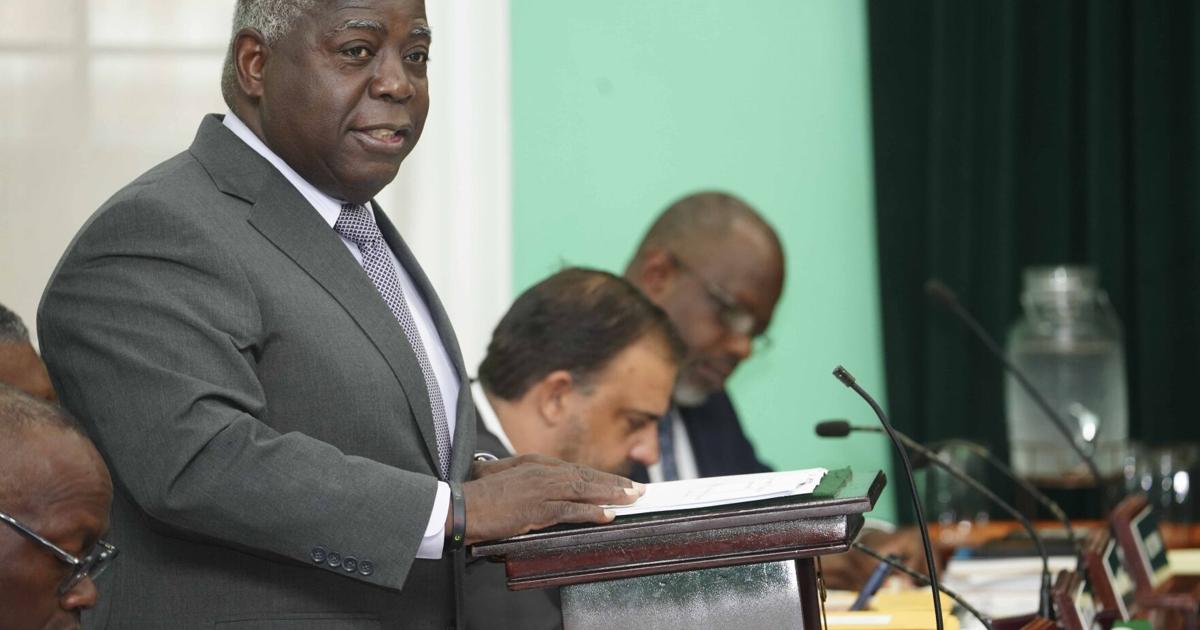Copyright thenassauguardian

The Automatic Exchange of Financial Account Information (Amendment) (No. 2) Bill, 2025 will ensure that investors choosing The Bahamas are choosing a jurisdiction that meets the highest global standards, Prime Minister Philip Davis said during debate on the bill yesterday. “When investors choose The Bahamas in 2025, they are choosing a nation with no blacklists to worry about, a strong and respected global standing, and an economy that is growing year after year,” he noted. “They are choosing a jurisdiction that meets the highest standards, and a country with no lingering questions and no clouds over its reputation, just a bright future ahead of us. Davis continued: “The Bahamas underwent the second round of effectiveness assessment by the OECD [Organisation for Economic Co-operation and Development] during the month of July 2025. The onsite assessment took place at the Ministry of Finance’s Legal and Regulatory Affairs Unit. He said that the assessment team, together with representatives from the Securities Commission, Central Bank, Insurance Commission, and other key stakeholders, engaged in meaningful dialogue regarding The Bahamas’ implementation of the Standard for the Automatic Exchange of Financial Account Information. The discussions focused on the implementation of an effective administrative compliance framework. “When The Bahamas made a commitment to implement the Standard for the Automatic Exchange of Financial Account Information in 2014, we agreed to join forces and cooperate with partner jurisdictions in the fight against tax evasion.” Davis further noted: “The commitment process to implement the Standard for the Automatic Exchange of Financial Account Information involved several building blocks. Over the past 11 years, The Bahamas has been putting the blocks in place to build a formidable exchange regime capable of detecting illicit financial flows and tax evasion schemes that undermine revenue collection. In 2016, The Bahamas’s domestic legislative framework was implemented with the enactment of the Automatic Exchange of Financial Account Information (AEOI) Act, 2016. The Automatic Exchange of Financial Account Information Regulations followed shortly thereafter in 2017. “We signed the Convention on Mutual Administrative Assistance in Tax Matters on the 15th December 2017, and the Multilateral Competent Authority Agreement (MCAA) on 13th December 2017. This framework enables us to monitor and supervise individuals and financial institutions to ensure adherence and compliance with the law, prevent circumvention of the standard, administer and enforce penalties for non-compliance, and make sure taxpayers fulfill their obligations. “During the onsite assessment, the assessment team recognized that The Bahamas has a CRS [Common Reporting Standard] AEOI compliance strategy in place, which is still evolving, but noted that we need to further develop our administrative compliance framework. “The amendments we are debating today essentially empower designated supervisory authorities charged with the responsibility of conducting compliance and investigation activities, such as audits and onsite visits to financial institutions, to ensure that they are reporting in a timely manner, to inspect and verify documents and records. The compliance activities also extend to ensuring that self-certifications are being collected and that the information reported in the CRS AEOI reporting portal is correct and accurate. The Bahamas is also under an obligation to ensure that financial institutions and persons are aware of potential circumvention schemes, including the risks presented by citizenship by investment and residence by investment schemes, to prevent misuse and address it when detected.” Lastly, the prime minister noted that the bill also seeks to amend the existing Section 13 on excluded accounts to ensure that the description of the said accounts aligns with the Common Reporting Standard. “The bill provides that administrative penalties collected under the principal act must be paid into the Consolidated Fund. In addition, the bill also provides for appeals, whereby an aggrieved person may appeal decisions made under the act to the Supreme Court.”



